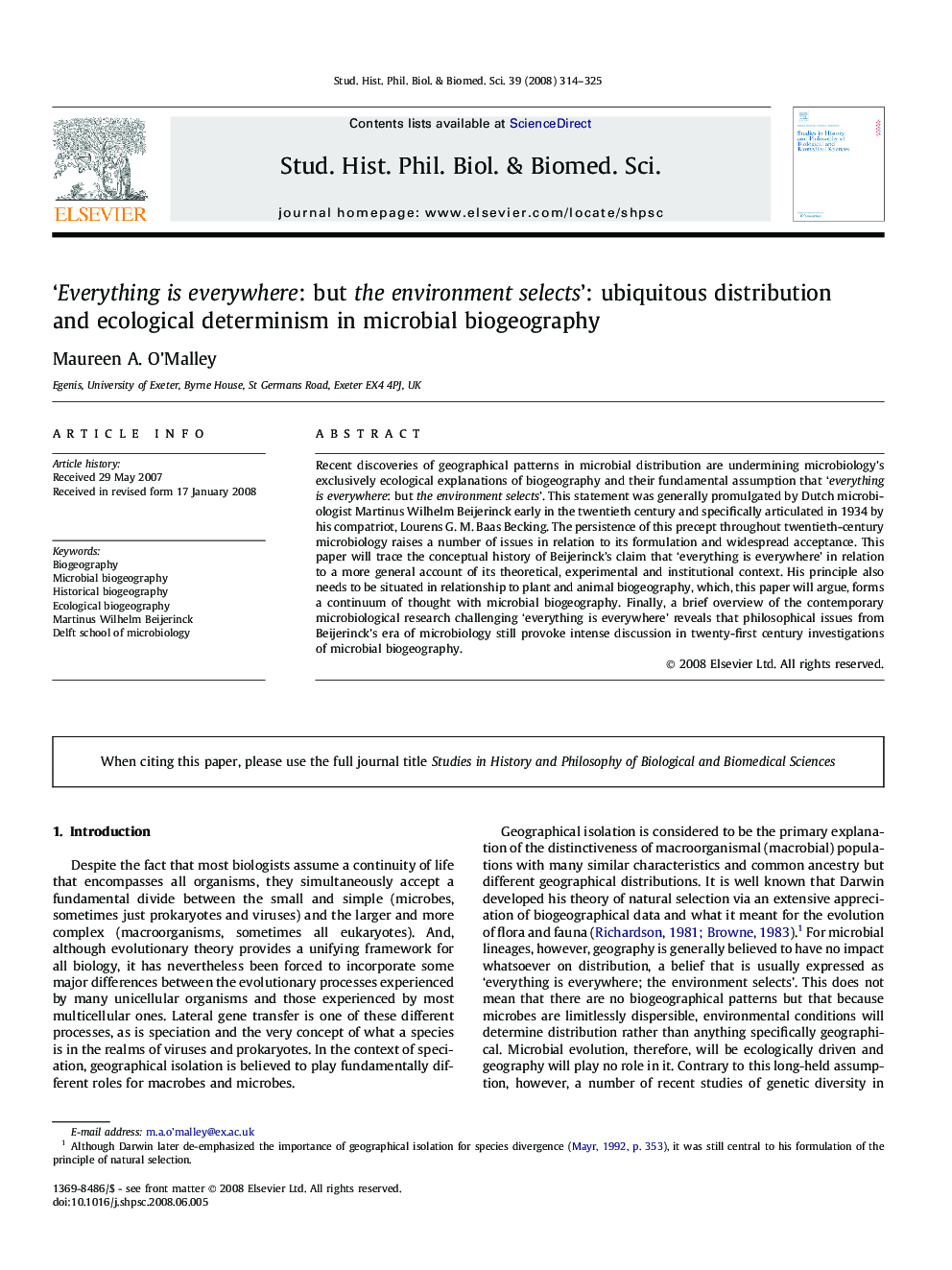| Article ID | Journal | Published Year | Pages | File Type |
|---|---|---|---|---|
| 1162087 | Studies in History and Philosophy of Science Part C: Studies in History and Philosophy of Biological and Biomedical Sciences | 2008 | 12 Pages |
Recent discoveries of geographical patterns in microbial distribution are undermining microbiology’s exclusively ecological explanations of biogeography and their fundamental assumption that ‘everything is everywhere: but the environment selects’. This statement was generally promulgated by Dutch microbiologist Martinus Wilhelm Beijerinck early in the twentieth century and specifically articulated in 1934 by his compatriot, Lourens G. M. Baas Becking. The persistence of this precept throughout twentieth-century microbiology raises a number of issues in relation to its formulation and widespread acceptance. This paper will trace the conceptual history of Beijerinck’s claim that ‘everything is everywhere’ in relation to a more general account of its theoretical, experimental and institutional context. His principle also needs to be situated in relationship to plant and animal biogeography, which, this paper will argue, forms a continuum of thought with microbial biogeography. Finally, a brief overview of the contemporary microbiological research challenging ‘everything is everywhere’ reveals that philosophical issues from Beijerinck’s era of microbiology still provoke intense discussion in twenty-first century investigations of microbial biogeography.
